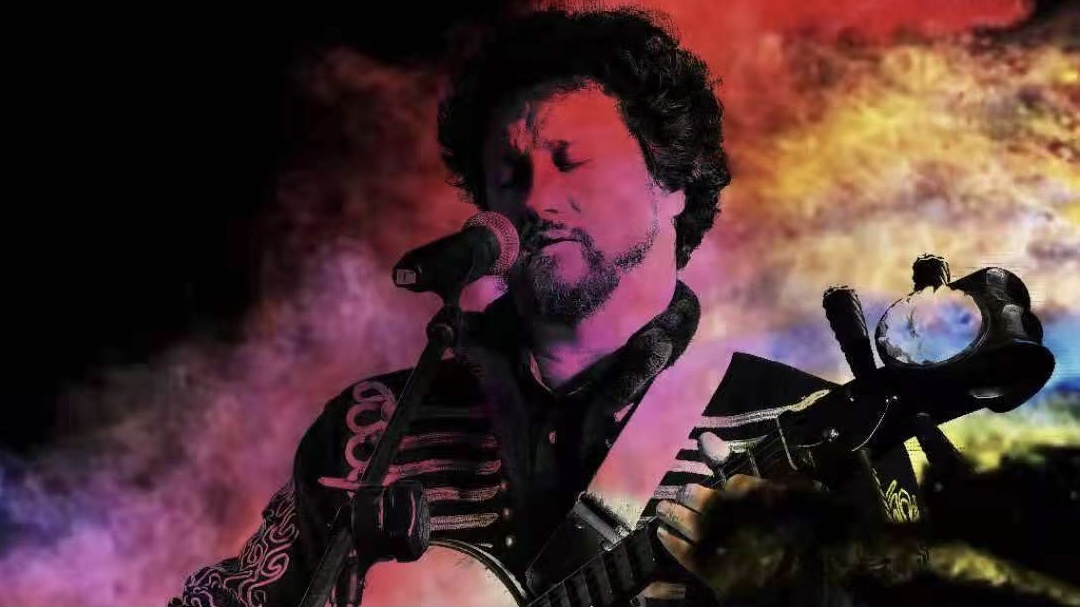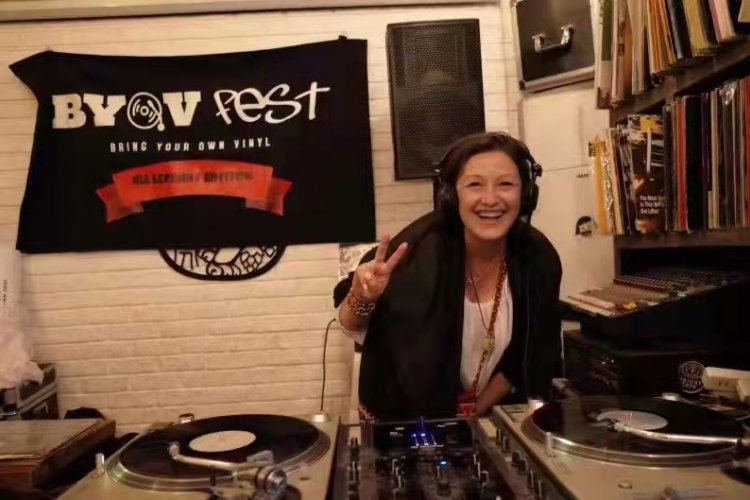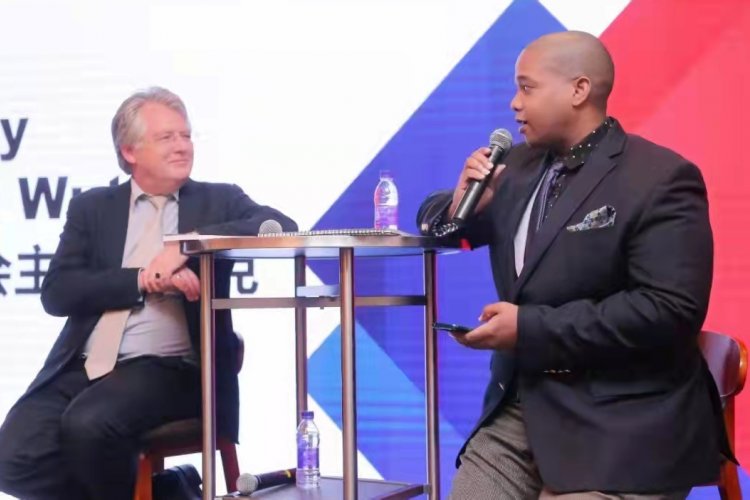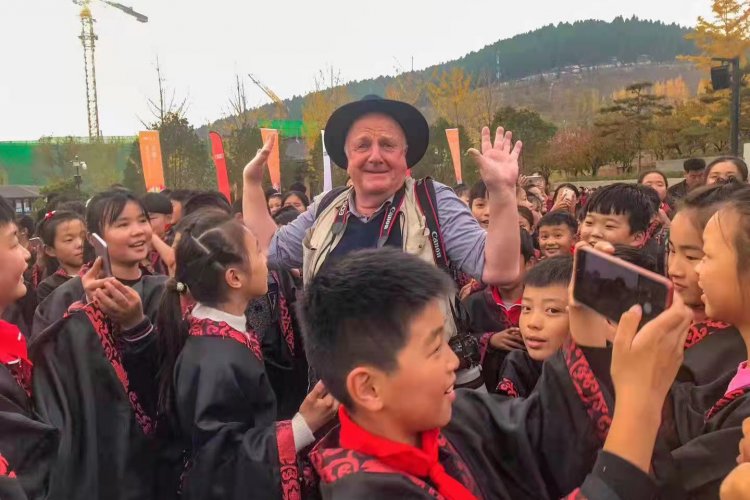20 for 20: French Musician Djang San
As we continue our celebration of 20 years of The Beijinger, we’re taking a closer look at some of the expats who have been here for two decades and those who have had an oversized impact during their stay.
There is something about music that has hit the softest spot in Djang San’s heart ever since he was a kid. Feeling connected with the profound feelings that only music could bring him, he knew from an early age that he was going to pursue it professionally. But it wasn’t until when he was 16 or 17 years old that he finally began his musical career.
Once his passion for music was ignited, San couldn’t wait to begin the journey to pursue his dreams. He started a band in high school, and around the same time became obsessed with strumming the soft chords of guitars.
Originally from France, Djang San spent his early years in Peru, and it was in this way that he was exposed to South American culture. When he was 6 he moved back to Bordeaux, in the southwest of France, with his family. The ensuing clash of different cultures had a profound impact on his music and the way he sees the world.

At the age of 20, Djang San came to Beijing for the first time, and became the first musician to revolutionize the use of the ruan, a traditional Chinese instrument, in rock and electro concerts. Looking back, he would have never imagined living in Beijing for more than 20 years, so when I got the chance to interview him, I was very eager to find out what makes Beijing a keeper for him.
What brought you to Beijing, and when did you arrive?
When I turned 20, I went to Beijing for the first time, and from 2000 to 2006 I was traveling between France and Beijing. But I spent most of my time living in Beijing.
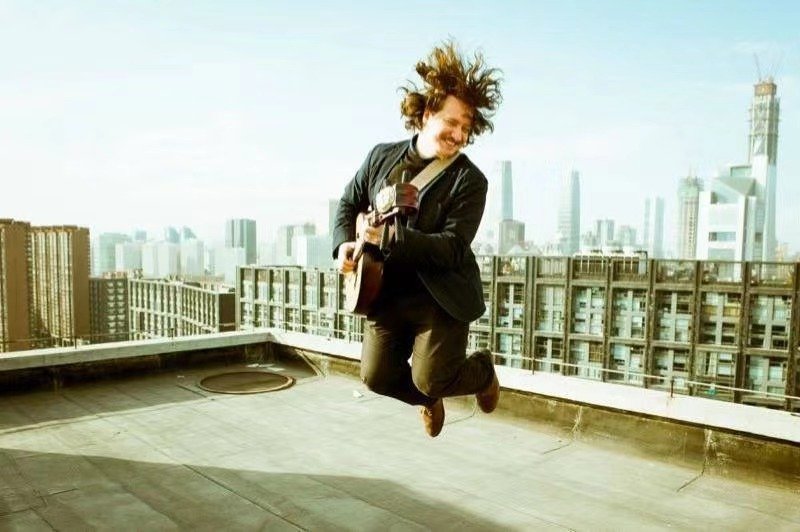
What were your first impressions of the city?
When I first arrived, I didn't know what to expect. But very soon I was attracted to rock and roll and the music scene in Beijing. I would spend my nights at River Bar, Get Lucky Bar, and other places where I would find local music.
How has the indie music scene changed in Beijing over the past 20 years?
A lot. When I first came here, the only festival Beijing had was the Midi Festival. I went there in 2001 and I saw Brain Failure there and a few other bands. At that time, the festival was still held at the Midi School. In the years after, festivals started to expand around Beijing and around the country. It was a very exciting time. I went to a rave party on the Great Wall in the summer of 2000, too! There was so much creativity and the bar and live house scenes were rapidly expanding, with new places like Yugongyishan, 2Kolegas, White Rabbit, River Bar, and Get Lucky Bar popping up, providing spaces for many bands to explore sounds and develop ideas. Lots of places opened from 2000 to 2011, such as Temple, Star Live, WumingGaodi, Jiangjinjiu, What Bar, D22, Modernista, MAO Livehouse, China Doll… Musicians could easily play every night anywhere in the city. Unfortunately, most of these places are gone now, and only a few survived. There are more festivals now than there used to be around the country, though.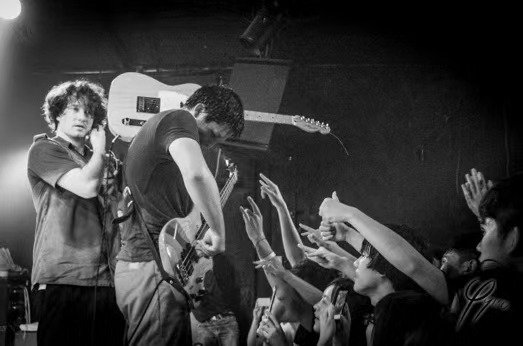
Can you name your three favorite places in the city (aside from your home)? These could be restaurants, parks, cafes, tourist attractions, neighborhoods, experiences, etc.
Modernista, Soi Baochao, and the courtyard of BBB.
Can you describe one of your most amazing concert experiences?
There were many. Surely some of the best were at the old MAO Livehouse on Guloudongdajie for the Fête de la Musique Festival, and of course at Temple Bar, where I have a lot of great musical memories. I also played on the Great Wall a few times and at the Midi Festival and Strawberry Festival. It is always a lot of fun.

Did you imagine at that time that you’d still be here more than 20 years later?
Not at all!
How has Beijing changed you?
Well, I have spent 20 years in Beijing, and I actually spend more time outside of France than in France now. It definitely changed my perception of the world and other countries through all the different personalities and nationalities I have met in the city. Beijing is also the place where I truly became a musician.

Why does Beijing continue to be a draw for you to this day?
Beijing was a completely different city when I first came. The city was not as big as it is now. There were only four rings. Actually, the Fourth Ring wasn’t even finished yet. The city was half of its size. Everything was under construction and the CBD wasn’t finished either. I really like the feeling of being in a place where something is happening every day.
Read:20 for 20: American Artist Michael Cherney
Image: Courtesy of Djang San

